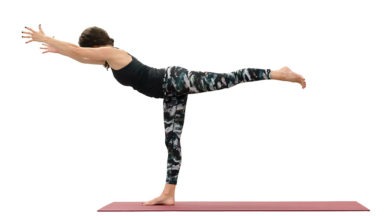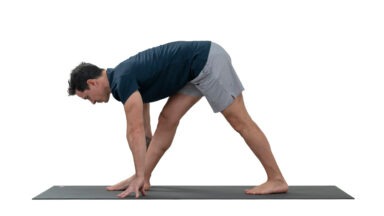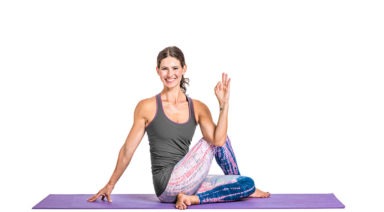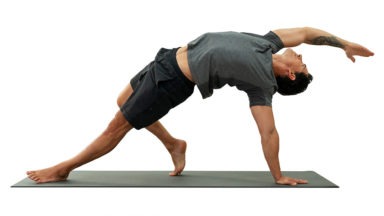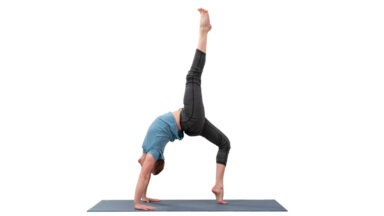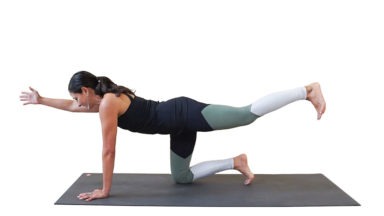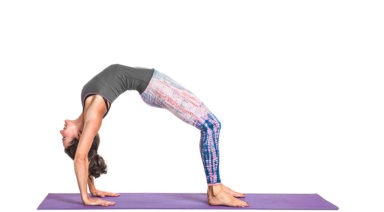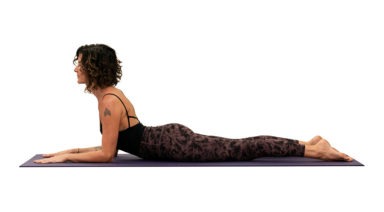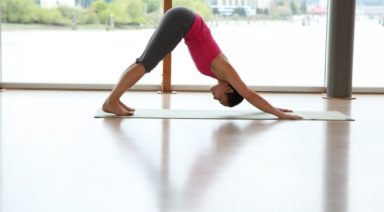Dedicate Your Practice, Dedicate Your Life

ded·i·cate [v.ded-i-keyt;adj.ded-i-kit] To set apart and consecrate for a sacred purpose.
At the beginning of a typical yoga class, you’ll usually be asked to either set your intention or dedicate your practice to something or someone. This is part of what makes yoga unique to other physical activities or exercise classes. You do not usually set aside time prior to a kickboxing or a Zumba class, but doing so before a yoga practice helps to center us. It allows us time to be still and to contemplate, or mediate on, why we came to do what we are about to do. Why am I practicing yoga today? It challenges us to be present in what we are doing, on and off the yoga mat.
In whatever we are doing, we can meditate and turn our thoughts toward anything. Meditation is contemplation. In Eastern Philosophy, many set their intention on deities or Self. Alternatively, many different organizations and religious groups incorporate aspects of yoga to dedicate their own practice, life and worship. Some religions focus on the gods and goddesses of Indian Mythology, and others, such as Christians, turn their focus to Jesus as they practice. dedicating this set apart time for a sacred purpose.
Remember the definition of yoga: yoga is to unite or to yoke. Yoke is defined as joining together. This wonderful gift of yoga is meant to “bring together,” whether speaking about uniting our beliefs with our movements and meditation practice, uniting one to another, bringing together our breath with postures or joining together our mind, body and spirit. This is an inclusive practice, never to be an exclusive practice. So no matter what your belief system or your background–sex, race, religion, or any other factor–you are welcome and accepted in yoga, just as you are.
The definition of dedicate, once again, is to set apart and consecrate for a sacred purpose. Take time to ponder this definition. What do you hope to achieve in the time that you set aside? Dedicate your time on the mat to whomever and whatever you want. Meditate on the immense blessings that you have to be thankful for in your life and devote your time to something much bigger than yourself. If I have friction in my life, I come to my mat and simply exhale as I create space for the new. Whatever the “new” is, I visualize that coming into my life on my next inhalation. I encourage you to create space by exhaling the old and inhaling the “new”; mentally, physically, emotionally, spiritually and relationally.
Perhaps you decide take this practice of dedication and devotion off your mat. What would you like to dedicate your day to? Furthermore, what might you dedicate your life to? This is a big question, I know. We so often just go through the motions. Pretty soon we find that our life is going by faster and faster. Yoga encourages us to be present and aware more than any other physical activity available.
Use your practice to become more focused and more keenly aware of what you may want to devote your life’s work to. It will be much bigger than you. It may even scare you once you receive the answer, but that is when you will know you are on the right track. We live in a hurting world and there is so much that you can do to extend your light to others. Start asking about dedication and devotion, set apart time for your sacred purpose.
Enhancing your Yoga Practice with Journaling
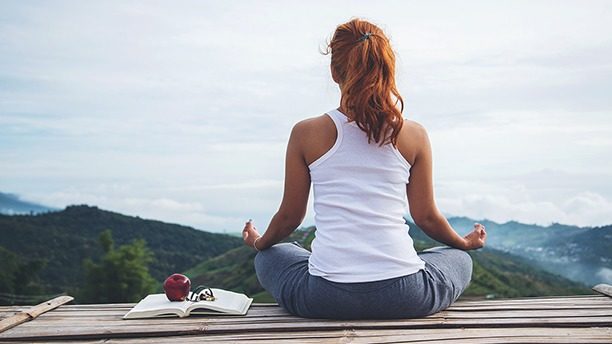
The art and practice of yoga promise many benefits to the practitioner, and the fruits of time spent on the mat are varied and innumerable. We experience these benefits in different degrees based on our dedication and commitment. Each of us has a gateway reason that initially brings us to the mat; typically, it’s something very broad like becoming more flexible or relieving stress. Inevitably over time, those reasons change, and the “get” from the practice becomes subtler, like raising consciousness or living more compassionately. No matter where you find yourself on the spectrum, there are tools that help to enhance the experience of Yoga, so the nectar of the practice is sweeter and more potent. Some of these tools require a hefty investment of time or resource and are therefore inaccessible to everyone, but other tools like the one we are talking about here are accessible to all. Journaling is a beautiful way to supplement and enhance your yoga practice—all you need is a pen, paper, and a few minutes of your day.
Why Journal?
Journaling is a simple sacred act that calls us to a place of exploration, curiosity, and revelation. You don’t have to be a professional writer to be a personal journalist. Writing helps to process and exfoliate the lives we lead and our thoughts about them. Journaling helps to strengthen the path for a deeper relationship with Self. This intimate art clears mental clutter and leaves a sense of spaciousness in its wake. It is detoxifying for the mind and cathartic for the heart. Journaling, unlike a lot of self-growth modalities, is relatively easy and doesn’t require a financial output. It necessitates no training, no physical capabilities, and there are no grades or performance criteria. It is one of the most open and forgiving therapeutic avenues available to us. The question should rather be: Why not journal? The benefits are limitless, and the outlay is small in comparison.
The Yoga/Journaling Connection
Yoga is so much more than movement; Yoga is the science of and relationship to the Self. The modern yogi doesn’t typically have time to devote all waking hours to the theory and practice of Yoga. We are blessed with such multifaceted lives that we tend to harbor boatloads of gunk that fog our ability to see and experience reality from a place of pure conscience. Because our human experience is so complex, having supplemental tools to support the yogic process is vital. Journaling is a beautiful and very personal way to expand upon our time on the mat. A yoga practice is full of “ah-ha” moments, and often, those precious nuggets of wisdom get lost because we roll up our mats and walk away without engaging with follow-up practices that give space to explore and provide roots for revelations.
Journaling 101
If you are new to journaling, the best way to get acquainted with the practice is by embarking on a daily stream of consciousness writing journey. This means that you sit down for five to fifteen minutes (or more!) and just write down what is flowing through your mind at that very moment. Don’t worry about punctuation, grammar, or making sense of anything; simply allow your thoughts to pour naturally through your hand to the paper. Don’t judge or choreograph the process; just write.

Writer’s Block
If you are finding that you sit down to journal, and nothing comes out simply be with the “nothingness.” Use it as an opportunity to meditate on the blockage. If you push past this place without recognizing it’s importance than you risk forfeiting some of the fertilizer that goes into the soil where you will eventually hope to grow. Everything exists for a reason, and we must honor what arises even if it feels unwelcome.








